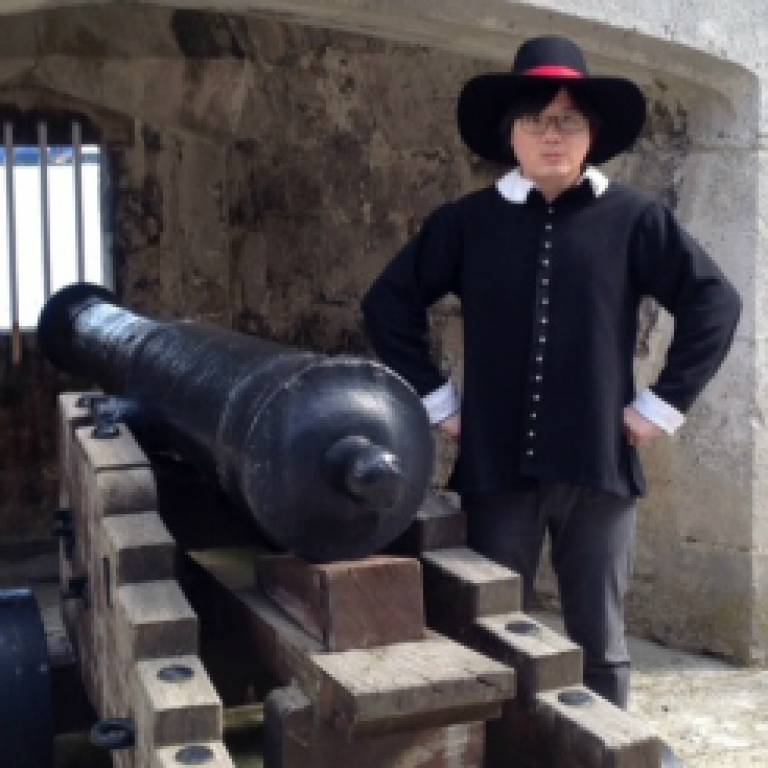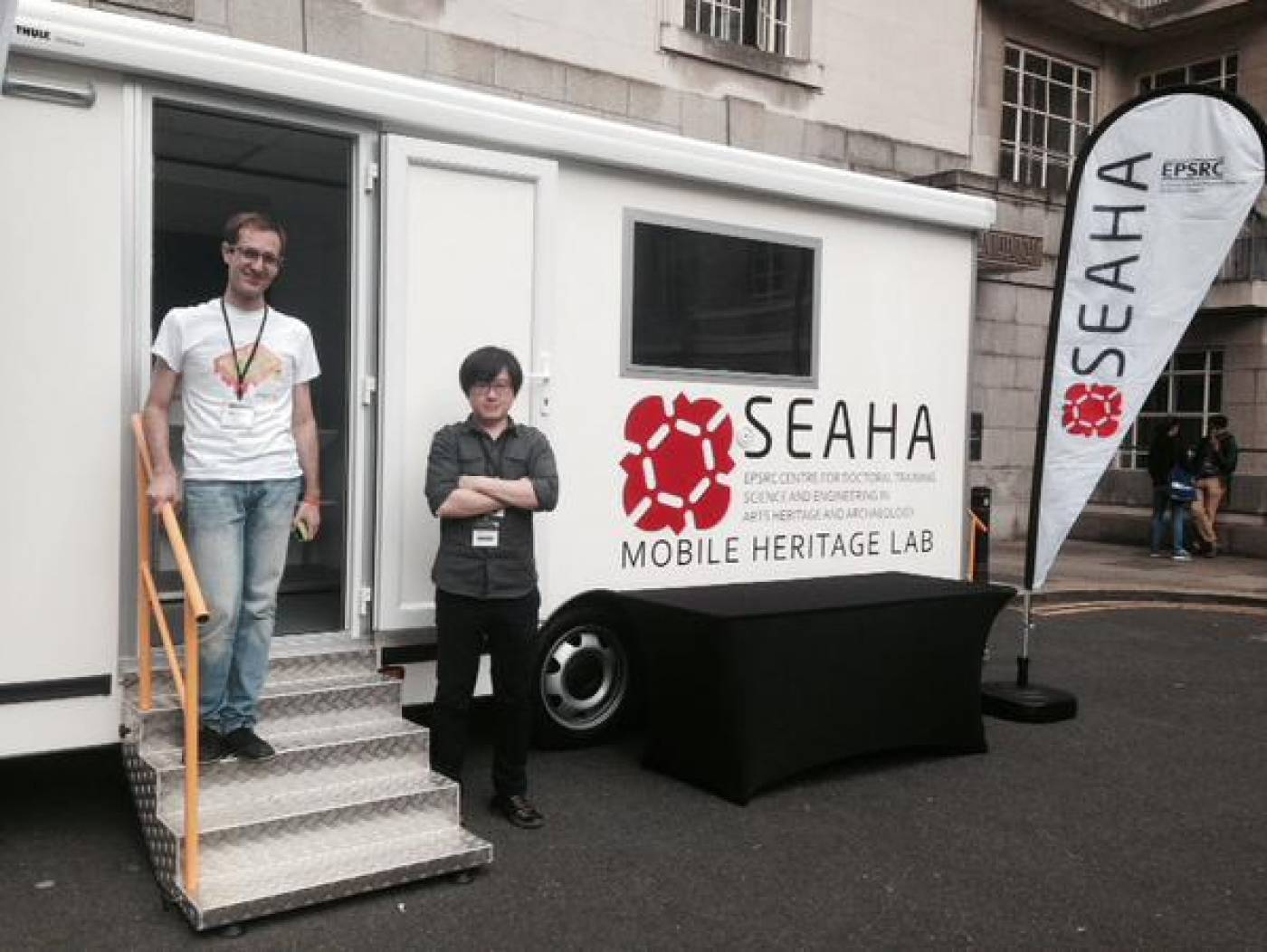Seven questions with Lik-Ren Tai
27 October 2016
This week meet Lik-Ren Tai, who works as a Mobile Heritage Science Lab Technician providing technical research support to students and staff in the UCL Institute for Sustainable Heritage.

1. What does your role involve and how long have you been at UCL? What was your previous role?
I have been in my
role at the UCL Institute for Sustainable Heritage for about a
year and a half and provide technical research support to students and staff
of both the UCL Heritage Science Laboratory and the Mobile
Heritage Laboratory. This support ranges widely from daily lab
management and running experiments with scientific equipment to fieldwork in
heritage institutions and sites, such as providing logistics for students and staff
to carry out research in cross-disciplinary scientific and engineering areas.
In addition to providing technical research support, I am also involved with deployment of the Mobile Heritage Lab to promote awareness of the type of research the students do at UCL, as well as to improve the public's understanding on importance of heritage science and conservation of our cultural heritage.

I was travelling in the Asia-pacific region before my present role at UCL. Prior to that, I worked in Osaka, Japan as a Chemical Science Patent Analyst on intellectual property where I supported clients and lawyers in reviewing of chemical and life sciences patent applications to the Japan Patent Office.
2. What working achievement or initiative are you most proud of?
Often in heritage
science, methods of analysis or collection of research data are carried out in
situ. Not necessarily easy to carry, but much of our scientific equipment is
portable. Due to the number of relatively large number of equipment we have, it was difficult for
us to keep track and loaning out to researchers.
During my time at UCL, I have developed an online booking system to make research equipment available for our students, academic staff as well as affiliated researchers. With this easy to use platform, our researchers can borrow and keep track of equipment and therefore, manage their research in a more efficient manner.
3. Tell us about a project you are working on now which is top of your to-do list?
With the expansion of The Bartlett to UCL Here East in summer 2017, the Institute of Sustainable Heritage along with other departments will take possession of new laboratory facilities. The new area will not just expand our research facility, but it will also be the home of our Mobile Heritage Laboratory. Hence, I am working on looking at the type of equipment to be transferred from our existing facility as well as acquiring new technologies compatible to our fieldwork and public engagement activities. Similarly, I am drawing up the requirements on the parking bay for our Mobile Heritage Laboratory.
4. What was your first job straight out of university?
My first job straight out of university was a research fellow position at the Biomedical Science - School of Chemistry, University of St Andrews. During my two year stay in Scotland, I developed mucoadhesive bio-polymer films for tissue retraction in medical applications - laparoscopic surgery or key-hole surgery. The role was research intensive and demanding, however, the research outcome contributed to the development of material used in surgical operations, overall reducing pain and recovery time for patients as well as lowering cost for the NHS.
5. What is your favourite and least favourite thing about London?
Favourite thing about London - cosmopolitan city, openness and it is easy to travel to mainland Europe for holidays.
Least favourite about London - expensive property prices, don't think I can afford to buy a house in my lifetime.
6. Who would be your dream dinner guests?
Thomas Piketty, the French economist who specialises on wealth and income inequality. I am interested to hear in person his understanding on how world wealth inequality would increase in the future and on his proposal for a progressive global tax to redistribute wealth.
Ban Ki-moon, 8th Secretary-General of the United Nations. I would like to find out what he thinks about the criticism he is facing in his role as the UN secretary general.
7. What would it surprise people to know about you?
Maybe it would surprise people to know that I spent two and a half years as an infantry soldier and an armoured vehicle operator in the Singapore Army 18 years ago. I had no real combat experience, but I did get to train in arid sections of Queensland, Australia and forests of northern Taiwan. It was also during that time I did not shower for the longest period in my life - 3 weeks.
 Close
Close

